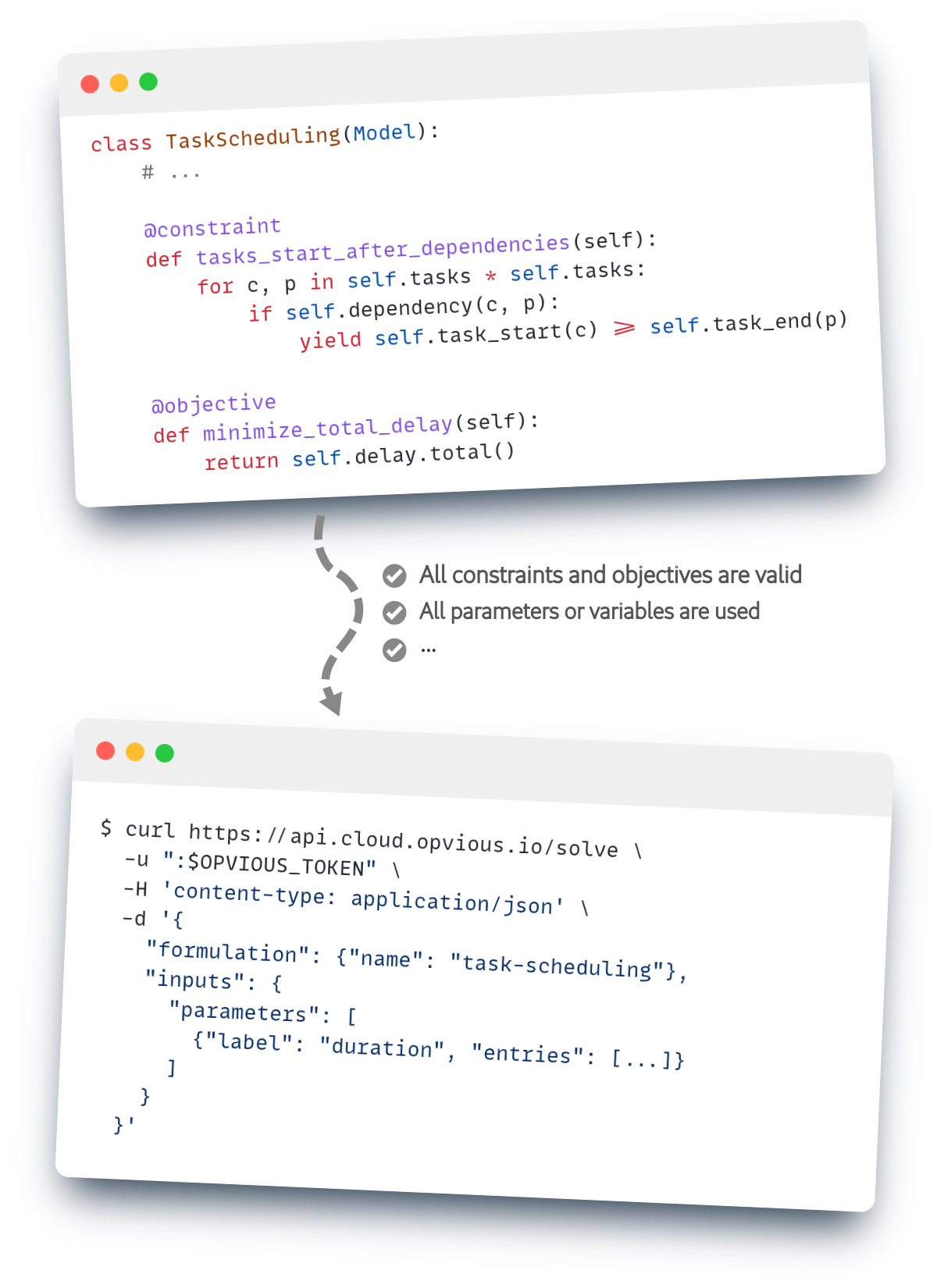We enable data-scientists
to optimize effortlessly
Solve mathematical programming problems at scale with our batteries-included optimization platform.
No separate solver or expensive licenses required.
How it works
Go from idea to decisions in minutes
1
Define your model
Get started from your favorite IDE or a Python notebook with a high-level declarative modeling API - or by directly writing the math.
2
Deploy it
Upload your model with a simple call. Saved models go through extensive static validations, catching many categories of errors early - even before adding data.
3
Get solutions
Solve your model from anywhere with an API call, integrate with pandas-compatible data sources, or embed optimization into a web application.

We optimize for your productivity
Strong safety guarantees
Multi-objective support
Smart infeasibility detection
Live progress notifications
Performance insights
LaTeX equation generation
Modular modeling patterns
LP format exports
Try it out from your browser

Budget allocation
Discover how to define and solve a simple optimization model to allocate a budget between projects.
Debt simplification
Discover how easy it is to use multi-objective strategies and standard modeling patterns (for example absolute values) with this practical algorithm.
Task scheduling
Discover how the same abstraction used for modeling patterns can also be used to implement disjunctive constraints in this scheduling example.
